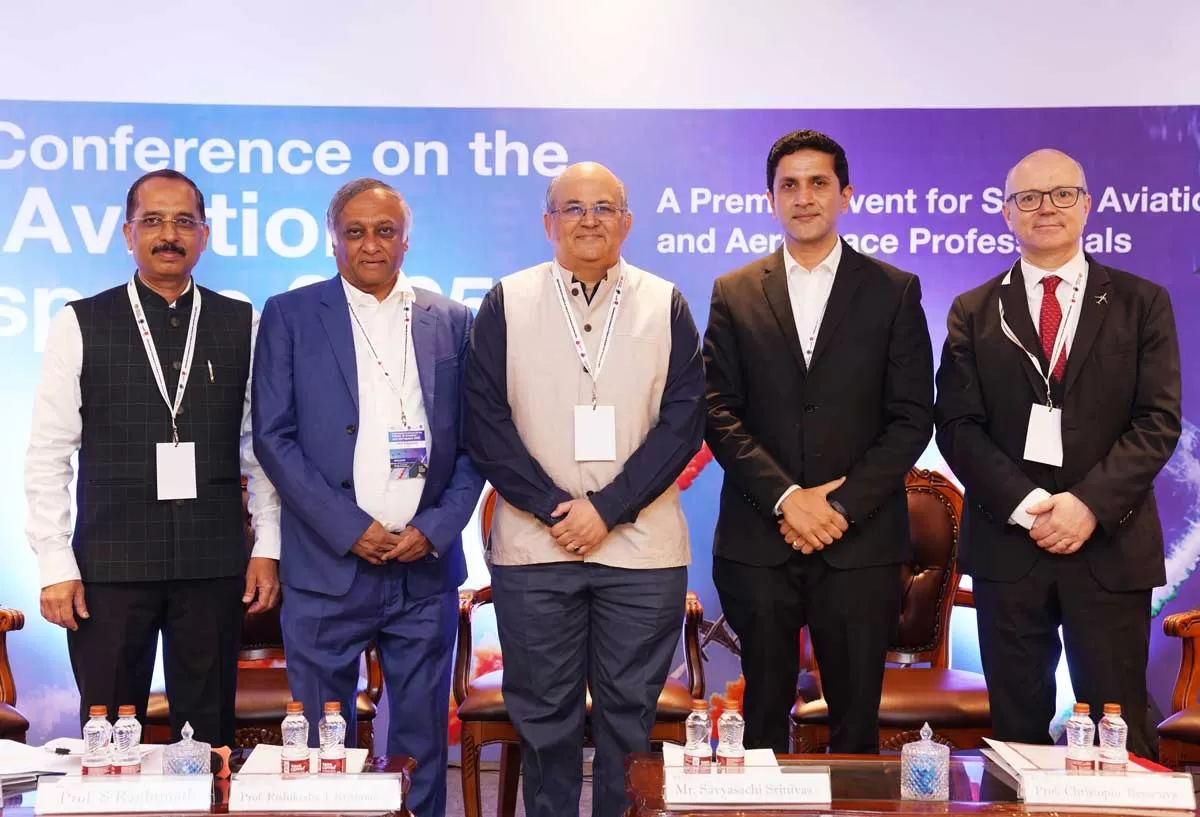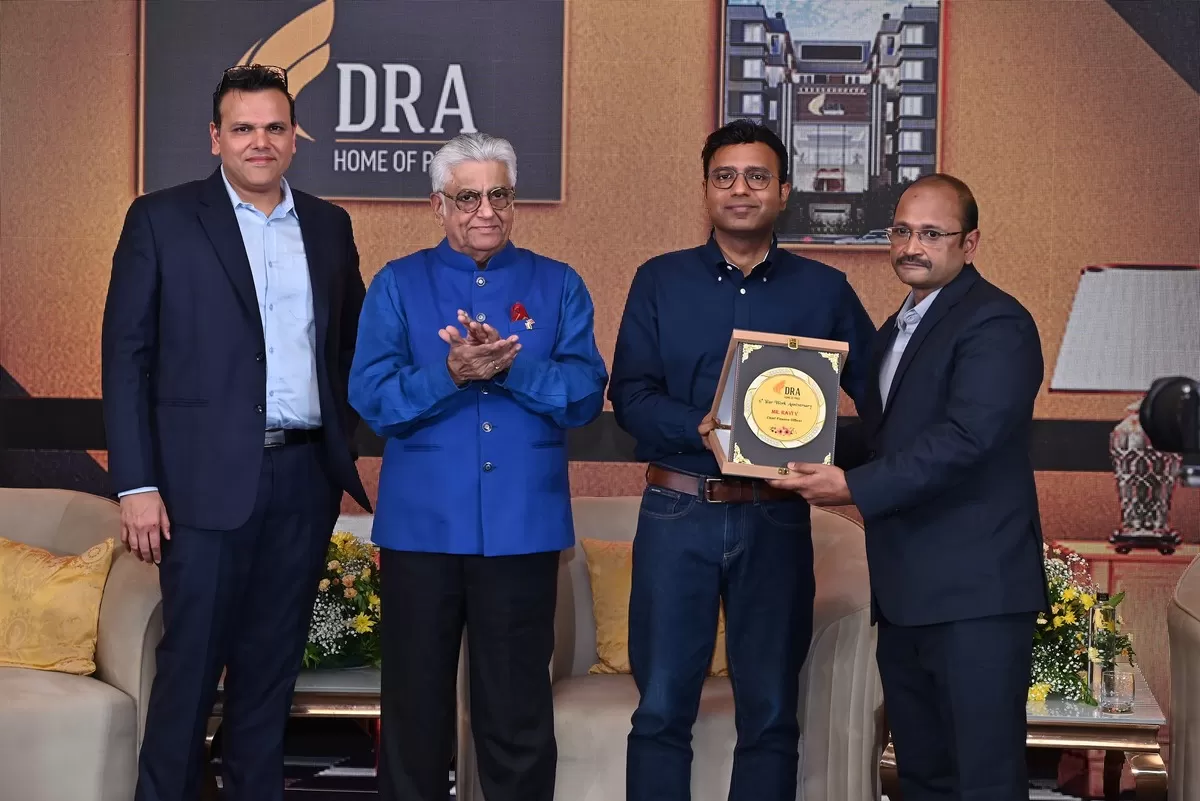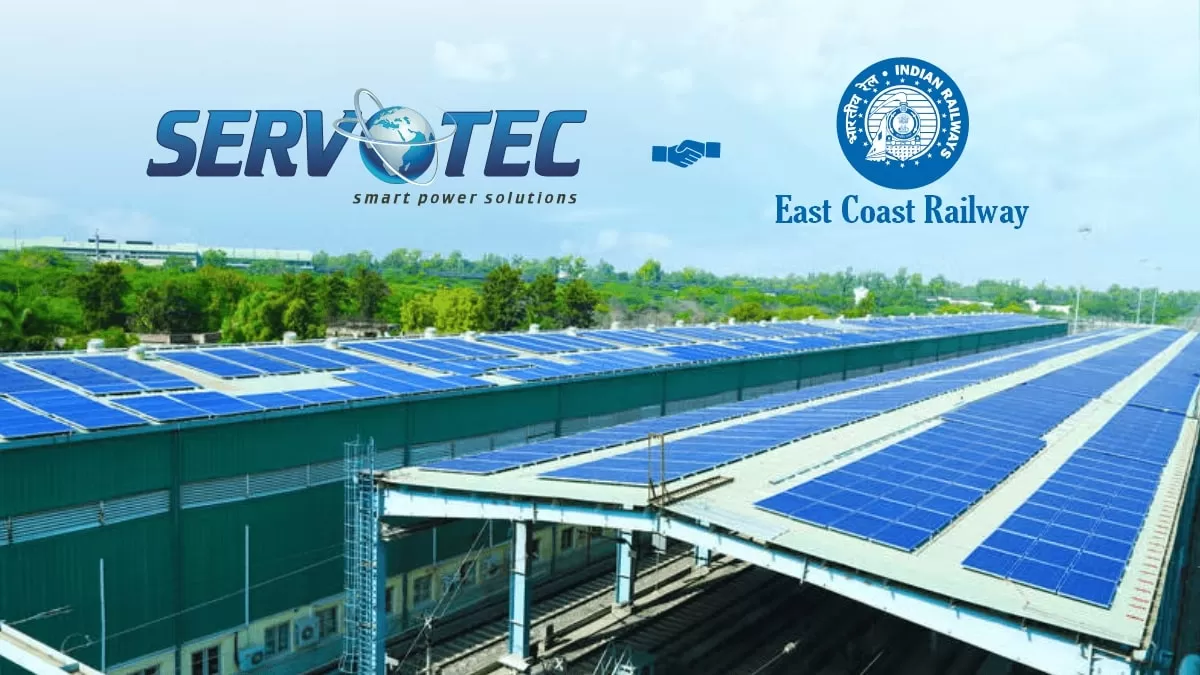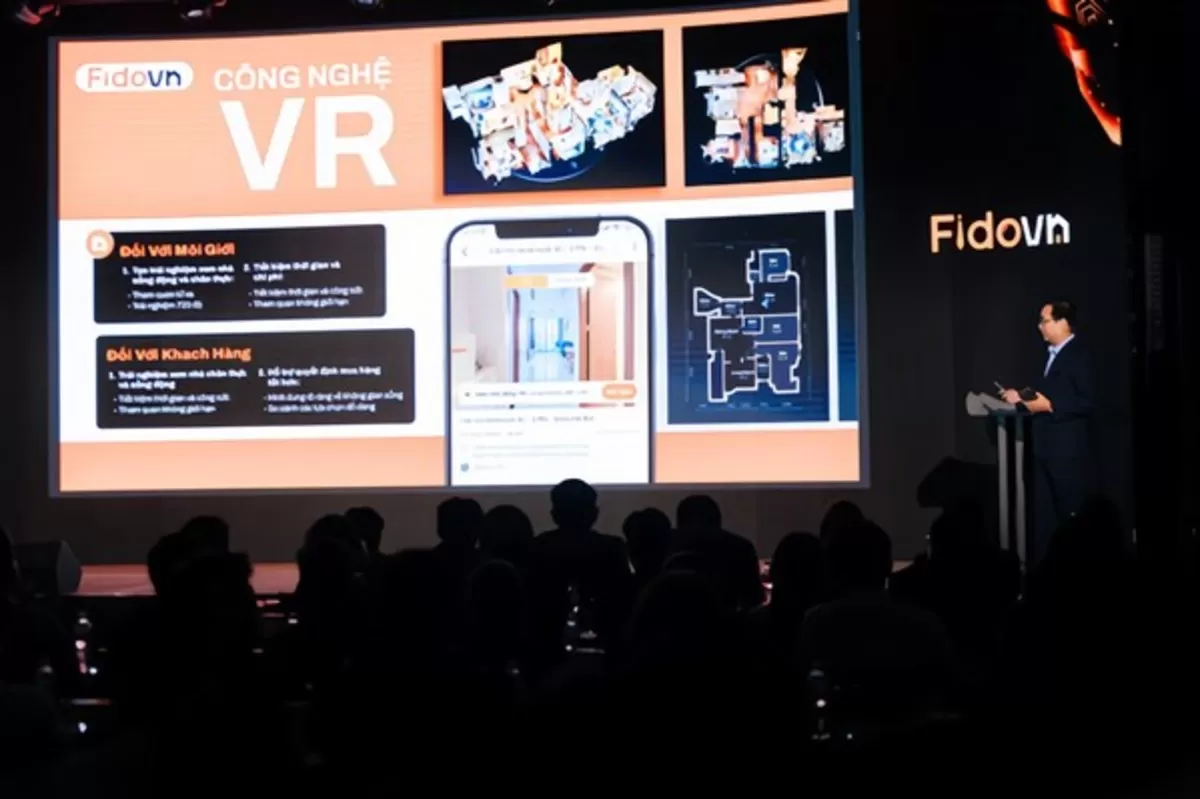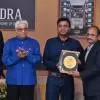At the 8th International Conference on the Future of Aviation and Aerospace (FoAA), hosted by IIM Bangalore in partnership with TBS Education, France, global leaders, policymakers, and industry experts gathered to explore the next phase of growth in one of the world’s most dynamic sectors.
The agenda encompassed India’s increasing role in global supply chains, the potential of Make in India manufacturing, and emerging innovations such as EVtol, drones, and AI-powered aviation systems.
In his keynote, Sabyasachi Srinivas, VP, Collins Aerospace, deciphered India’s growing R&D capabilities and the role of digital enablers like Generative AI and Digital Twin technologies in transforming aviation.
Prof Rishikesha T Krishnan, Director, IIM Bangalore, highlighted the need to strengthen human capital to fully realise the sector’s design and manufacturing potential.
Conference Chairs Prof G Shainesh and Prof S Raghunath noted FoAA’s evolution into a premier knowledge platform over the past eight years. Prof Raghunath also addressed India’s ambition to capture 10% of the global aerospace supply chain through enhanced design and engineering capabilities.
Prof Christophe Benaroya, TBS Education, France, reflected on a decade-long partnership with IIMB through the GMAE programme, which now boasts over 350 alumni in leadership roles across global aerospace firms.
The first panel on 'Exploring Market Potential for Aviation' at FoAA 2025 featured Sunil Bhaskaran, Director – Air India Aviation Academy, Air India Limited; and Prof Shainesh G, Conference Chair, IIM Bangalore.
Sunil Bhaskaran described the GMAE programme at IIMB as a very important piece in developing leadership in the sector as Bangalore is the hub of innovation and growth. “The impact of aviation on the Indian economy is large. Some of the best airports in the world are now in India. The aviation ecosystem is seeing tremendous growth with an order book of over 1700 aircraft. In such a scenario, we need trained manpower, and at our academy, we train pilots and engineers not just for India but also for the developed world,” he said.
The questions from the audience ranged from adoption of SAF in India, use of AI & ML in upskilling of pilots and engineers, and training for ground crew, especially those working on the tarmac, in aerospace safety.
The second panel at the FoAA 2025, chaired by Dr Srinivasan Dwarakanath, Director General, Aerospace India Association, brought critical attention to India’s readiness not only to participate in, but to lead the global aerospace value chain.
Panelists Anuj Jhunjhunwala, CEO, JJG Aero; F R Singhvi, Joint MD, Sansera Engineering, and Kaushal Jadia, SVP & CTO, Cyient, explored India’s potential to move from manufacturing to design, innovation, and self-reliance.
Signalling to rapid aviation growth as a wake-up call for the domestic aerospace sector, Dr Dwarakanath said, “We need a national aerospace roadmap and indigenous raw material capabilities”.
“Despite logistical costs and tariffs, commercial aviation is growing. But regulatory and certification gaps still slow us down,” added Kaushal Jadia. F R.Singhvi urged Indian firms to shed the fear of failure and invest in R&D. “We must move from the colonial throwback of being obedient followers to fearless innovators”. Meanwhile, citing the progress in getting local raw materials approved, Anuj Jhunjhunwala said, “Global players like Airbus are now seriously engaging with Indian firms”.
At the ‘Make in India: The Way Forward’ panel of the FoAA 2025, chaired by Dr Kota Harinarayan, Former Programme Director and Chief Designer, Tejas LCA, the conversation turned toward India's imperative transition from build-to-print to build-to-spec to achieve design-led leadership in aerospace.
Dr Harinarayan noted that with steadfast industry collaboration, the Indian Air Force could operate an entirely indigenous fleet within 15 years. “The next challenge,” he said, “is scaling these successes from defense to civil aviation.”
Suresh Baroth, CEO, DELOPT, highlighted the necessity of serious capital infusion and robust design-thinking education, and Sujaya Shashikiran, drawing from her experience leading Hical Technologies as MD, reflected on building quality-driven capabilities through global exposure.
Rajeev Kaul, MD & CEO, Aequs Pvt Ltd, detailed the firm’s two-decade journey in cultivating domestic value creation, while Biju Nanukuttan, Flight Data Systems, spoke of deeper alignment between academic institutions and industry to build long-term design and systems-level competencies.
The panel on ‘EVtol and Drone: Regulations, Safety & Mass Adoption’ at FoAA 2025 examined the push and pull between technological momentum and regulatory readiness.
Amber Dubey, Senior Advisor, McKinsey & Company, opened the conversation with a reminder of how far things have come. “Young start-ups have had drone policy rewritten and 90 per cent of India is now green zoned. That is the power of a technology whose time has come”, he said.
Prof Satya Chakravarthy, Founder, The ePlane Co, spoke of the progress on air ambulances by his firm and urban EVtol systems, but pointed to the rigidity of existing rules that are yet to keep pace with new technologies.
According to Sarath Chandra Gudlavalleti, CEO, NeoSky, “differentiation is key” in AI and ML-assisted innovation, while Dr Rahul Singh, Co-founder, ICATT, stressed the life-saving potential of EVtols in emergency care and critical response.
Divya Manchanda, Chief-Airworthiness, The ePlane Co, mapped out a broader medical ecosystem, where lightweight drones deliver essential medicines to remote medical centers, and larger craft is capable of organ transport and patient evacuation in difficult terrain.
Prof Christophe Benaroya, Head – MSc Program in Aerospace Management, TBS Education, in conversation with Suraj Chettri, Vice President & Head, HR, Airbus, at FoAA 2025, talked about the challenges around talent acquisition and retention, reskilling and upskilling, and employee engagement. “Typically, we learn from hindsight and a black swan event like COVID highlighted the faults of this learning model! We need people with foresight,” he said.
In her recorded message, Prof Dr Cordula Barzantny, TBS Education, touched upon the role of programmes like IIMB Exec Education's GMAE in addressing the shortage of talent in the sector.
The final panel of the day on ‘AI & Analytics: The Enabler & Game Changer’, chaired by Prof Raghunath S, convened Uma Maheshwar, Chief Consulting Engineer, GE Aerospace, and Vishak Raman, Vice President – Sales, Fortinet.
“This is an inflection point for the sector,” said Uma Maheshwar, explaining how AI has transformed the aerospace industry. Illustrating his point with examples of business outcomes of adopting AI, he spoke about its value in predictive maintenance, optimisation of routes, etc. “Along with adopting of AI, come cyber security risks,” said Vishak Raman, suggesting ways of mitigating such risks through IT-OT integration or convergence.
Meaningful connections were forged, potential collaborations explored, and professional networks across global and domestic players enhanced at the conference. The delegates believe the annual conference serves as a vibrant platform to stay current with the latest research, policy developments, and best practices that are driving the future of aviation and aerospace.
